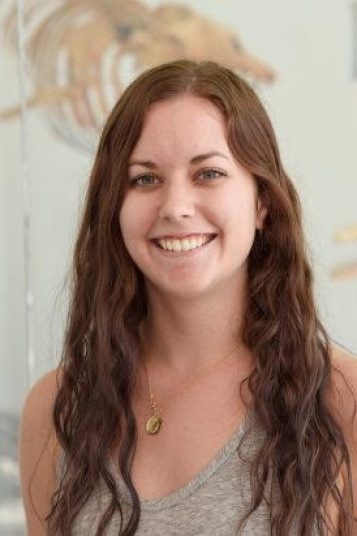ASC Student Spotlight: Kirby Mills
 Kirby Mills is a PhD student in ecology and evolutionary biology at the University of Michigan. She recently completed her master’s in environment and sustainability and for her internship worked with Dr. Nyeema Harris, on an expansive conservation project in West Africa. Located across Burkina Faso and Niger, the W-Arly-Pendjari complex is a protected area home to the largest remaining population of West Africa’s critically endangered lions.
Kirby Mills is a PhD student in ecology and evolutionary biology at the University of Michigan. She recently completed her master’s in environment and sustainability and for her internship worked with Dr. Nyeema Harris, on an expansive conservation project in West Africa. Located across Burkina Faso and Niger, the W-Arly-Pendjari complex is a protected area home to the largest remaining population of West Africa’s critically endangered lions.
Mills won the graduate student poster competition at the African Studies Center’s recent STEM conference, where she presented her work on West Africa’s endangered lion population. She utilized motion-sensor camera surveys to look at the spatial distribution and activity patterns of the lions. The STEM conference allowed Mills to further engage with scholars by building on her previous presentations at The North American Congress for Conservation Biology, The Wildlife Society, the Ecological Society of America, and the American Society of Mammalogists.
For her PhD, Mills is interested in the ecology of large carnivores and wants to develop research on how humans utilize protected areas in relation to wildlife in the region. Protected areas are often areas that are essential to the livelihoods of people, and this reality has important implications for ecological processes. One such implication includes predator-prey interactions. Mills will ask questions such as, how do large carnivores respond to humans and their livelihoods in protected areas? What effects do these responses have on broader ecological dynamics?
To answer these questions, Mills will conduct fieldwork in Niokolo-Koba National Park, Senegal, which has very few West African lions remaining in the park. She will conduct camera surveys and analyse scat samples to see where the lions are living and what they are eating, which allows for comparison across different areas. Namely, she will investigate how these behaviors are influenced by human activity in the park. Eventually, she hopes to get collars on a sample of lions to allow for fine-scale movement data.
During her PhD she hopes to expand these questions to other carnivores living in the park, including leopards and wild dogs that are both species of conservation concern. These populations need urgent conservation without displacing the people in the region who rely on the park for their livelihoods.

